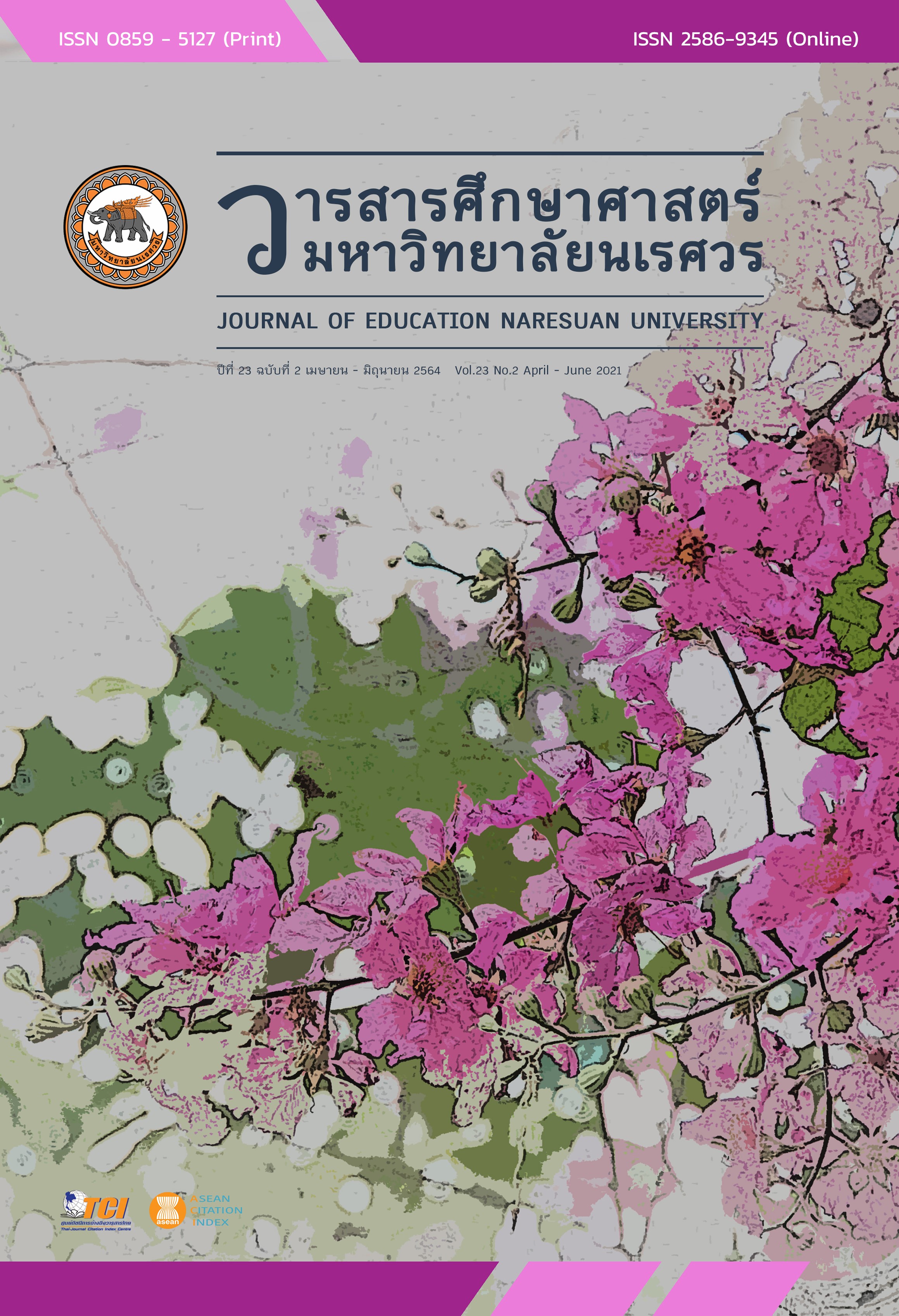A COMPETENCIES DEVELOPMENT MODEL OF NOVICE TEACHER IN 21ST CENTURY BASED ON SCHOOL AS LEARNING ORGANIZATION รูปแบบการพัฒนาสมรรถนะครูใหม่ในศตวรรษที่ 21 ตามแนวคิดโรงเรียนเป็นองค์การแห่งการเรียนรู้
Main Article Content
Abstract
The purpose of this study was to construct a competencies model of novice teachers in the 21st century based on school as a learning organization. There were 3 steps followed in the construction of the model: First, the samples by using multi-stage sampling which consisted of 312 novice teachers, 279 mentors and 286 school directors completed a needs assessment form, and the data were analyzed using average and standard deviation. In the second step, 8 experts constructed and verified the competencies model of novice teachers in the 21st century based on the data collected in step one. Finally, the model, that was developed, was evaluated by 291 School Directors of schools under the Office of the Basic Education Commission.
The instrument aimed at the possibility and the usefulness of the model. An average and standard deviation were also used to analyze the obtained data. Results of the study showed that the 15 competencies, needed by novice teachers in the 21st century based on school as a learning organization, were as follows: 1) three core competencies consisting of teamwork, self-development and teacher’s ethics and integrity, 2) five functional competencies consisting of learning management, student development, classroom management, teacher leadership and relationship and collaborative-building for learning management, and 3) seven personal competencies consisting of emotional intelligence, social intelligence, cross-cultural competency, media and ICT literacy, critical thinking and problem solving, creativity and content knowledge. These competencies were grouped into 3 levels: organization level, group level and individual level. Five development steps consisted of 1) needs assessment, 2) objectives for development, 3) development procedures, 4) guidelines for development, and 5) assessment. Based on school as a learning organization, school directors, under the Office of the Basic Education Commission, believed that the possibility and
the usefulness of the model are at the highest level.
Article Details
The owner of the article does not copy or violate any of its copyright. If any copyright infringement occurs or prosecution, in any case, the Editorial Board is not involved in all the rights to the owner of the article to be performed.
References
Hiatt-Michael, D. (2001). Promising practices for family involvement in school. Greenwich, CT: Information Age Publishing.
Krejcie, R. V., & Morgan, D. W. (1970). Determining sample size for research activities. Educational and Psychological Measurement, 30(3), 607–610.
Manabu, S. (2019). Concept school reform a learning community and practical application of theory (2nd ed.). Bangkok: Pico (Thailand). [in Thai]
Ministry of Education. (2017). Summary of His Majesty's orders King Rama 9 and King Rama 10, the subject of education. Bangkok: Office of the Basic Education Commission. [in Thai]
Munkejkit, C., Chanbanchong, C., Jansila, V., & Mejang, S. (2008). The development of teacher induction model in basic education school. Journal of Education Naresuan University, 10(Special), 41-56. [in Thai]
National Institute of Education (NIE). (2009). A teacher education model for the 21st century. Retrieved from https://www.nie.edu.sg/docs/default-source/te21_docs/te21-online-version---updated.pdf?sfvrsn=2
Nongyao, A., Worain, C., & Kanpong, A. (2017). Model of school administration for developing students learning skill in the 21st century. Journal of Community Development Research (Humanities and Social Sciences), 10(1), 132-143. [in Thai]
Office of the Teacher Civil Service and Educational Personnel Commission (OTEPC). (2018). Criteria and methods for preparing and developing intensively assistant teacher position. Retrieved from https://otepc.go.th/images/00_YEAR2561/07_PS/261061.pdf [in Thai]
Padjad, S., Chanbanchong, C., Sometip, T., & Kornpuang, A. (2011). The Model of management to enhance the performance competency of new teacher under municipal school. Journal of Education Naresuan University, 13(3), 57-77. [in Thai]
Saavedra, A. R., & Darleen, O. V. (2012). Learning 21st-century skills requires 21st-century teaching. Phi Delta Kappan, 94(2), 8-13. DOI: 10.2307/41763587
Senge, P. M. (1990). The fifth discipline: The art and practice of the learning organization. New York: Doubleday.
The Secretariat of the Senate. (2017). Production system and teacher development. Retrieved from https://www.senate.go.th/document/mSubject/Ext83/83534_0001.PDF [in Thai]


